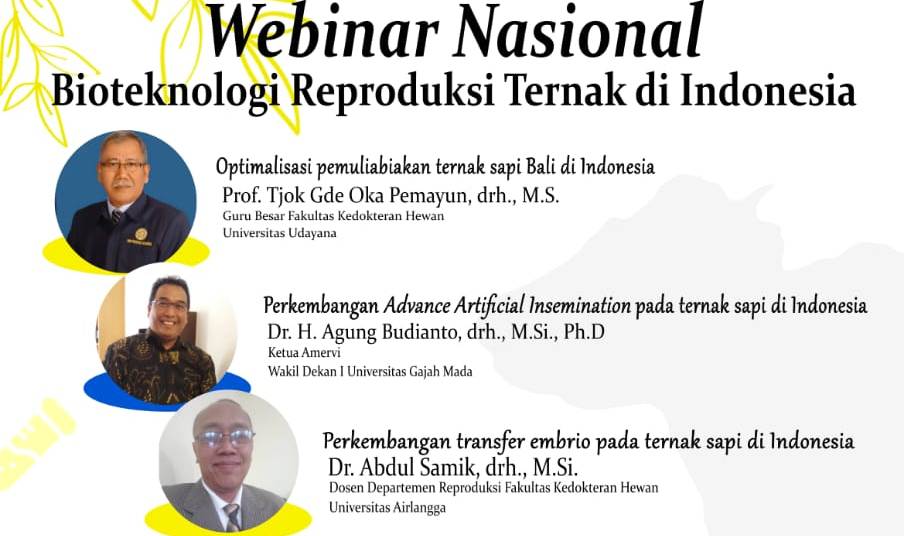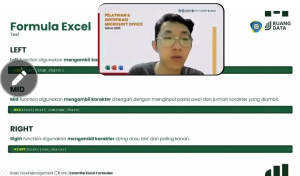UNAIR NEWS – Commemoration of the 66th Anniversary of Universitas Airlangga (UNAIR) continues. On Saturday, November 28, 2020, Faculty of Veterinary Medicine UNAIR held a National Webinar on “Animal Reproduction Biotechnology in Indonesia”. On this occasion, there were three experts in their respective fields including Prof. Tjok Gede Oka Pemayun, drh., MS (Professor of FKH Udayana), drh. Agung Budianto, MP, Ph.D. (Vice Dean I FKH UGM), and Dr. Abdul Samik, drh., M.Si. (FKH UNAIR Veterinary Reproduction Expert).
The Science and Technology (IPTEK) is progressing and developing rapidly every year, so that all sectors feel the impact, including the livestock sector. Reproductive technology in livestock includes artificial insemination (IB), embryo transfer (TE), spermatozoa separation or sexing, in vitro fertilization (IVF), preservation and cryopreservation as well as genetic engineering technology to produce superior livestock clones, such as through cloning, chimeras, gene transfer, genetic mapping and much more.
Doctor Agung Budianto, in his zoom presentation, said that the discovery of new technology in the reproduction sector had an impact and benefits for breeders, especially in Indonesia as it can overcome the problems and challenges faced by the livestock field, especially in increasing the population, production and productivity of livestock both in quality and quantity.
“Artificial insemination is the first generation reproductive technology which aims to make maximum use of a superior animal male by inserting spermatozoa into the female reproductive tract,” said the chairman of the Indonesian Veterinary Medical Association (AMERVI).
He continued, there are several things that need to be considered by field inseminator officers regarding the implementation of this artificial insemination (IB). It must continue to prioritize sustainable breeding such as upholding the purity of germplasm in Indonesia.
“Currently, the problem of artificial insemination in Indonesia is that service per conception (s / c) is still high, the effort of one calf one year has not been achieved, data is not validated comprehensively and there is no continuous evaluation by the relevant agencies,” said Doctor Agung.
Furthermore, Doctor Agung explained that education for breeders must be carried out more intensively because understanding and discipline of farmers about the symptoms of estrous and their detection is still low.
“IB actions are still very relevant for livestock development in Indonesia. Let’s return the IB with the correct SOP, so that the impact can be felt by farmers. And opportunities for new reproductive technology must be developed, ” he concluded. (*)
Author: Muhammad Suryadiningrat
Editor: Nuri Hermawan









